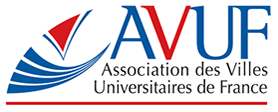
The maxim "publish or perish" has left a number of casualties in its wake. Professor Curt Rice of the University of Tromsø in Norway wrote in 2013, "Our system of scholarly publishing reliably gives the highest status to research that is most likely to be wrong."
One issue is that researchers, especially those working in the life sciences, humanities and social sciences, often lack training in statistics. Statistically insignificant data gets published and even publicized. In 2013, Texas A&M professor Valen Johnson determined that between "17% and 25% of marginally significant scientific findings are false." Stanford professor John Ioannidis' paper, Why Most Published Research Findings are False, echoes these conclusions. In it he faults limited research collaboration and small, statistically insignificant sample sizes.
a dangerous profitable market
Another issue is the fact that publications favor positive findings in promising fields. As a result, researchers in fields such as pharmacology simply do not publish findings that are either inconclusive or go against expected outcomes.
Additionally, scientific publishing is a dangerously profitable market. Among the 10,000 open-access journals listed by the Directory of Open Access Journals are so-called "predatory publications" that publish questionable content in exchange for payment. One even published an article by a certain Marge Simpson. Open-access publishing was intended to make research free and accessible. In order to survive however, open-access publications often charge researchers rather than readers. The French Academy of Sciences defends this solution but it is not without its faults.
If the peer review system worked properly, these issues might not exist. However, with close to 30,000 publications and counting, the system cannot keep up. The existence of the blog Retraction Watch attests to this fact. Today's professors just don't have the time to invest in the system that was designed to safeguard research from the perils of publishing at any price.






